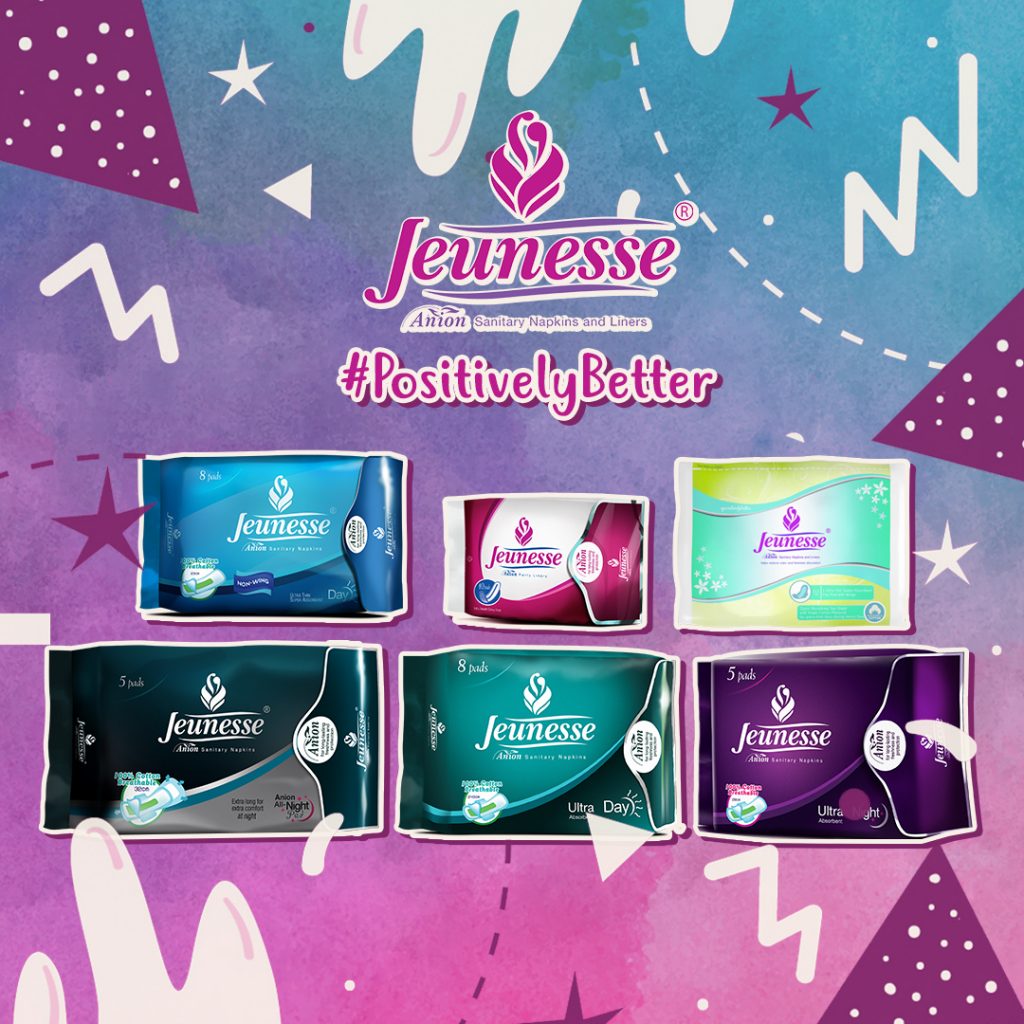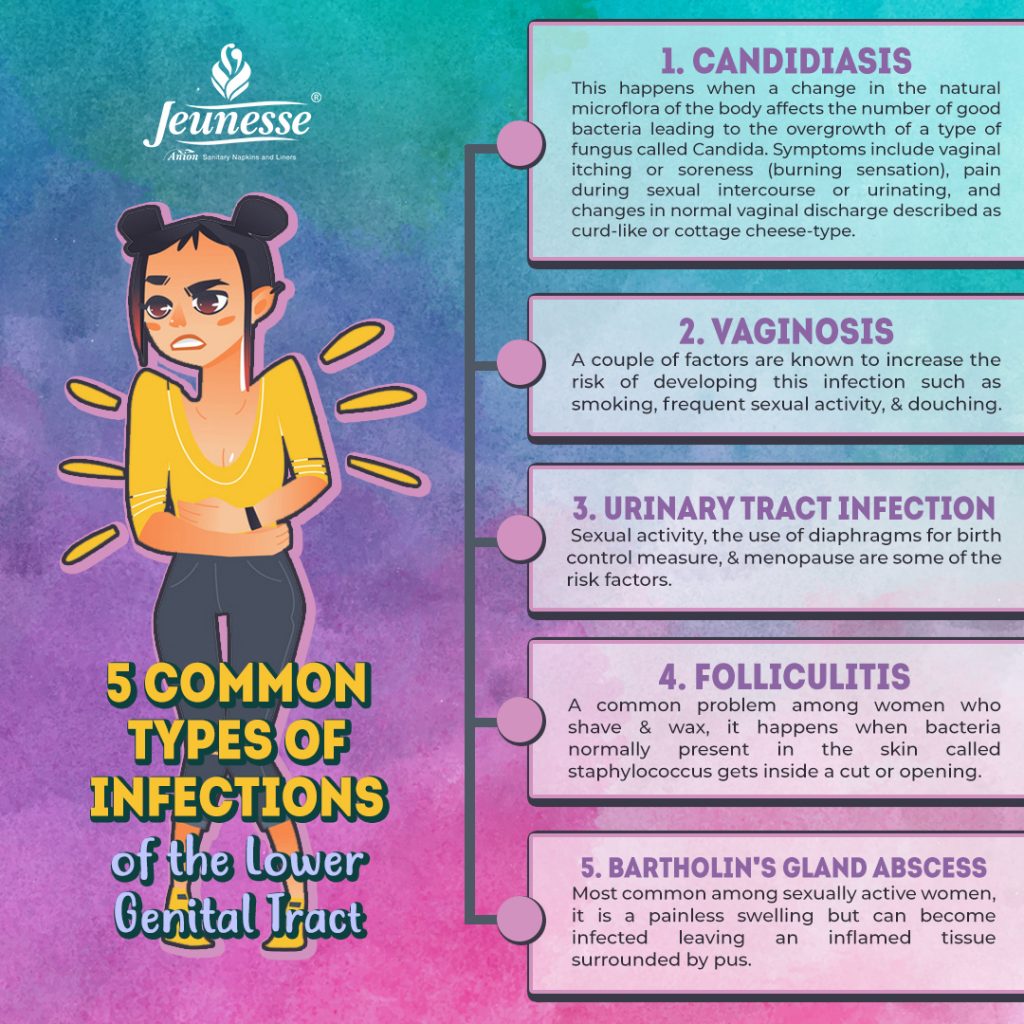More than ever, women now lead busier lives. Balancing our careers and family lives is quite a tall order. We need all the help we can get especially at that time of the month when we become more moody than usual. Aside from choosing sanitary pads that offer maximum protection from stains, we should also be aware of the various sicknesses that we can contract if we are not careful.
According to Obstetrician- Gynecologist Bernadette Ong-Sumo, M.D. these are the five most common vulvovaginal infections and how to avoid them:
- Candidiasis is a type of yeast infection that affects 3 out of 4 women in their lifetime. This occurs when the natural flora of the body changes and affects the number of good bacteria leading to the overgrowth of fungus called candida. Symptoms include cottage cheesy discharge, vaginal itching and soreness, and pain during intercourse. Pregnant women, those with impaired immune systems, diabetics and those taking broad spectrum antibiotics are more likely to develop this.
Use cotton panties and avoid tight fitting clothes. Do not self medicate. Use antibiotics only when prescribed by your doctor.
2. Vaginosis, like candidiasis, is characterized by inflammation caused by an upset vaginal balance. From lactobacilli dominant to mixed flora. Characterized by a “fishy” smell and a frothy, grey-white discharge, this can be contracted by having multiple partners, smoking and douching.
- Urinary Tract Infection (UTI) is caused by bacteria entering the urethra and traveling all the way to the bladder and kidneys. There’s a burning sensation when urinating, strong smelling urine that may be cloudy or red and pain that lingers in the center of the pelvis or pubic bone. Menopause, intercourse, use of diaphragm are some of the risks in developing this.

Observe proper hygiene by wiping from front to back when urinating and doing number #2. Drink plenty of water to flush away the bad bacteria. Emptying the bladder after intercourse is also a good practice.
In addition, folliculitis (normally caused when shaving and bacteria get inside a cut or opening) and Bartholin’s gland Abscess (fluid build-up in the gland which may be avoided by safer sex practices).
The great news is that these are all preventable. As aforementioned, practicing good hygiene, wearing cotton panties, avoiding scented pads and tight-fitting clothes and most important, regularly visiting your OB-GYN are ways to avoid getting sick down there.

I’ve tried many sanitary pads in the past and was quite reluctant to switch. But when I discovered Jeunesse Anion, it made a believer out of me. Not only did it protect me from my heaviest days, it also did not have any adverse effects on my sensitive skin. Made from unscented and 100% virgin cotton, its specifically modified cellulose-based hydrogels are super absorbent, non-toxic and hypoallergenic. It also has antifungal, antibacterial and odor reducing benefits!
It’s time to make a change for the better. Jeunesse Anion sanitary pads are available in Watsons, Mercury Drugstore, SM Department Stores Beauty Section, leading groceries, Lazada and Shoppee.
With a pocketful of glitter,

